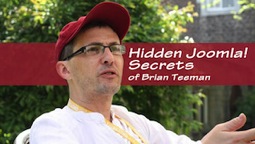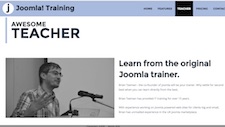In the world of open source, leadership is less about authority and more about influence. It is not defined by job titles or organizational charts. It is about creating the conditions for others to succeed.
One of the most important lessons for any open source leader to learn is this:
Being a leader is not about doing everything yourself.
It is tempting to try, but leadership is not about being the sole engine of progress. It is about building trust, communicating clearly, and knowing when to step aside so others can lead.
Taking on every task, solving every issue, or making every decision may seem noble, but it often slows progress and discourages others from contributing. If you want to grow, you need to lead differently.
Share the Vision Clearly
Everyone has ideas. But ideas are only useful when they are communicated.
One of your most important responsibilities as a leader is to explain the purpose and direction of the project.
This means being vocal about your goals, your values, and why it matters. People are more likely to contribute when they understand what they are building and why it is important.
Great leaders communicate the vision behind their idea. They make the case clearly and passionately in a way that invites others in. That might mean writing a thoughtful blog post, presenting at meetups, or explaining decisions in a transparent and inclusive way.
When your vision is clear, people can see where the project is going and where they might fit in. You do not need to provide step-by-step instructions. Instead, you provide context and inspiration.
Empower Contributors
Once you have shared the vision, the next step is to allow others to bring it to life.
Not every contributor will have the time or interest to make a long-term commitment. Not everyone needs to be part of a team to have a meaningful impact. One-time or part-time contributors are also essential to the health of the project. Create an infrastructure that supports all kinds of involvement. All of these contributions are valuable.
A healthy open source project welcomes contributions of all sizes and types. As a leader, your job is to make it easy for people to help and rewarding for them to come back. That means offering guidance and support without expecting everyone to become a full-time contributor.
Leadership means creating the space for others to contribute.
Give contributors ownership. Encourage them to take on responsibility. Let them make decisions, and support them when they do. You do not have to review or approve every change yourself. In fact, if you do, you are creating a bottleneck and potentially burning yourself out.
Empowerment builds confidence. Confidence builds momentum. And momentum builds a community that does not rely on just one person to keep moving.
Empowerment goes beyond logistics. It is also about trust.
Coordinate Efforts, Do Not Micromanage
Good leaders help coordinate work rather than trying to control every detail.
It is perfectly appropriate to join early discussions. Leaders often help clarify the scope of a problem, suggest possible approaches, and connect contributors with the right tools or resources. But once someone has taken responsibility for a task, it is time to step back.
Let contributors contribute.
You can still check in periodically. Ask how things are going, offer help, and make sure people have what they need. But avoid the urge to direct every decision. When you empower people rather than micromanaging them, you build trust and foster long-term engagement.
Communicate Openly and Often
Transparency is not just a nice-to-have. It is essential for trust and sustainability in open source.
Contributors, users, and potential collaborators should be able to see what is happening. That includes knowing what decisions are being made, what challenges you are facing, and what direction the project is heading. When people are left in the dark, they lose confidence and feel disconnected.
You do not need to write long reports, but regular updates make a difference. A monthly or bi-weekly project summary, a changelog, a community call, or even a brief note on what the team is working on can go a long way.
Transparency is also about being honest when things are delayed, when priorities change, or when mistakes are made. It builds credibility and invites others to help solve problems rather than simply observe them.
When a community can see everything, it increases accountability, encourages broader participation, and strengthens relationships. Open communication allows people to feel involved, even if they are not contributing code.
Know When to Step Back
Being a leader does not mean being the busiest person in the project. It means knowing when to guide and when to get out of the way.
Your job is to support others, not to control every outcome. When someone steps up to take ownership, your role becomes one of encouragement and trust.
- Let them lead.
- Let them experiment.
- Let them learn.
In the long run, the best leaders are those who make themselves less essential, not more.
Final Thoughts
Open source leadership is not about doing it all yourself. It is about sharing your ideas, empowering others, coordinating efforts, and being radically transparent.
You are not measured by the number of commits you make, the issues you close, or the features you ship. You are measured by the environment you create and the people you support.
The real success of your project comes not from what you build alone, but from what others are able to build because of you.
Ultimately, being a leader in open source means embracing a mindset of service over control. You are not managing employees. You are enabling volunteers. Your job is not to do it all. It is to make it easier for others to contribute and grow.
- Lead by example.
- Communicate your vision.
- Empower contributors.
- Build teams.
- Share ownership.
And most importantly, let go of the idea that you need to do everything yourself. Because the best leaders do not just build great projects.
They build great communities.





